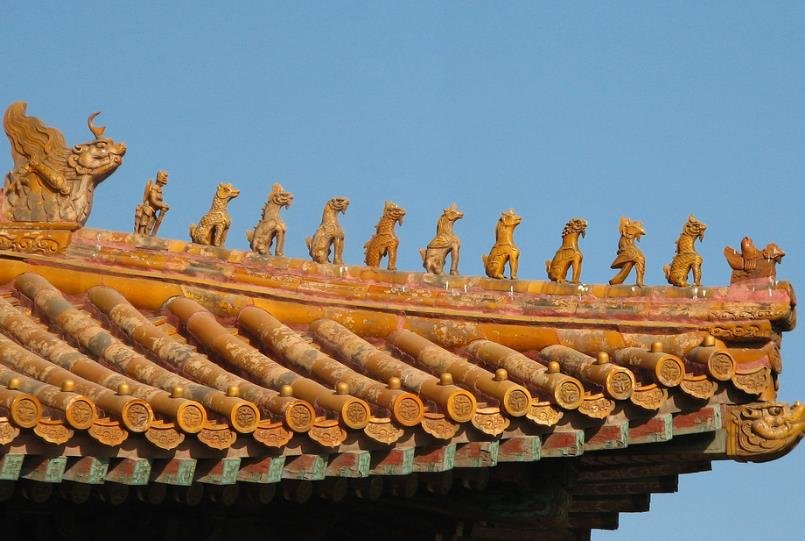Former Egyptian Prime Minister Essam Sharaf emphasized the significant advantages of Chinese modernization for Egypt and the world during a recent interview at the 2024 Understanding China Conference in Guangzhou. His insights shed light on the deep-rooted values driving China’s development and its collaborative initiatives that foster global prosperity.
Embracing Harmony and Prosperity
In his remarks, Sharaf underscored that Chinese modernization is deeply anchored in the foundational values of Chinese civilization—harmony, peaceful coexistence, and prosperity. These principles, he noted, are not just abstract ideals but are actively embodied in China’s strategic initiatives.
“The achievement of Chinese modernization is rooted deeply in the key values of Chinese civilization,” Sharaf stated. “Harmony and peace are essential for prosperity, and these values drive China’s efforts to create opportunities for global development.”
His comments were made during the 2024 Understanding China Conference, which attracted over 600 participants, including politicians, officials, scholars, foreign envoys, and media representatives. The conference, themed “Carry through the Reform to the End — Chinese Modernization and New Opportunities for World Development,” served as a platform for discussing China’s role in shaping future global dynamics.

Building a Community with a Shared Future
A pivotal point in Sharaf’s interview was the concept of building a community with a shared future for mankind. He described it as a “philosophical platform for world cooperation,” highlighting its importance in fostering international collaboration.
“This concept and the global initiatives like the Belt and Road Initiative, the Global Development Initiative, the Global Security Initiative, and the Global Civilization Initiative are gifts of China to the world,” Sharaf explained. These initiatives aim to enhance economic ties, security cooperation, and cultural exchanges, thereby promoting a more interconnected and prosperous global community.
Strengthening Egypt-China Partnerships
Sharaf lauded the robust cooperation between Egypt and China, particularly in infrastructure and energy sectors. He cited successful projects such as the Central Business District in Egypt’s new administrative capital and the Benban Solar Park in Aswan Province as prime examples of this fruitful partnership.
“China is doing a great job in Egypt,” Sharaf remarked. “The Belt and Road projects have transformed our infrastructure and energy landscape, creating new communities and boosting economic growth.”
Table: Key Egypt-China Belt and Road Projects
| Project Name | Location | Investment (USD) | Impact |
|---|---|---|---|
| Central Business District | New Administrative Capital | 5 Billion | Modern commercial hub, increased employment |
| Benban Solar Park | Aswan Province | 3 Billion | Renewable energy production, sustainable growth |
| Suez Canal Economic Zone | Suez | 2 Billion | Enhanced trade logistics, industrial growth |
| New Administrative Capital | Cairo | 4 Billion | Urban development, housing projects |
| High-Speed Rail Network | Various Locations | 1 Billion | Improved transportation, connectivity |
These projects not only enhance Egypt’s infrastructure but also create thousands of jobs, contributing to the local economy and improving the quality of life for Egyptians.
The Role of Reform and Opening Up
Sharaf emphasized that ongoing reform and high-level opening up are indispensable for China’s continued modernization. He highlighted that China’s commitment to these principles has been pivotal in fostering strong economic relations and people-to-people exchanges with countries like Egypt.
“You can see that the world is not at its best cases, since there are a lot of conflicts,” Sharaf acknowledged. “I’m delighted that China will continue its reform and opening up, because China’s openness helps a lot of countries, especially those in the Global South.”
He pointed out that China’s high-level opening up has led to significant improvements in economic ties and cultural exchanges between China and Egypt over the past decade. This openness has facilitated mutual growth and understanding, strengthening the bond between the two nations.
A Vision for Global Cooperation
Looking ahead, Sharaf expressed his belief that China’s modernization and its commitment to global initiatives will continue to benefit not only Egypt but the entire world. He warned that halting China’s reform and opening up would be a substantial loss for global development.
“If China stops reform and opening up, it would be a great loss for the world,” he stated. “China’s initiatives provide new opportunities for countries to develop and prosper together.”
Sharaf’s perspective aligns with the broader international view that China’s rise and its strategic initiatives play a crucial role in shaping the future of global economic and political landscapes. By promoting harmony, prosperity, and cooperation, China is positioning itself as a key player in addressing global challenges and fostering sustainable development.
A Partnership for the Future
Essam Sharaf’s interview at the Understanding China Conference highlighted the profound impact of Chinese modernization on Egypt and the global stage. His insights reflect a deep appreciation for the values driving China’s development and the tangible benefits of its collaborative initiatives.
As China continues to advance its modernization efforts, partnerships like that of Egypt and China are likely to serve as models for how nations can work together to achieve shared prosperity and address common challenges. Sharaf’s emphasis on harmony, peace, and cooperation underscores the potential for a more interconnected and harmonious world, driven by mutual respect and collaborative growth.
